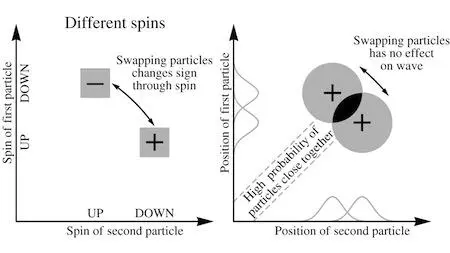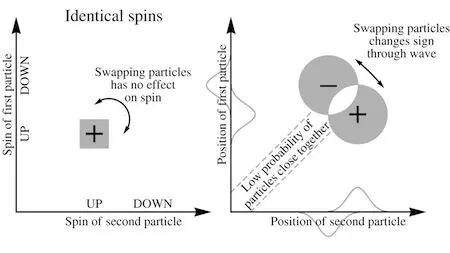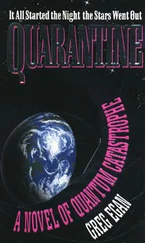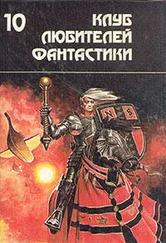Greg Egan - The Eternal Flame
Здесь есть возможность читать онлайн «Greg Egan - The Eternal Flame» весь текст электронной книги совершенно бесплатно (целиком полную версию без сокращений). В некоторых случаях можно слушать аудио, скачать через торрент в формате fb2 и присутствует краткое содержание. Жанр: Фантастика и фэнтези, на английском языке. Описание произведения, (предисловие) а так же отзывы посетителей доступны на портале библиотеки ЛибКат.
- Название:The Eternal Flame
- Автор:
- Жанр:
- Год:неизвестен
- ISBN:нет данных
- Рейтинг книги:4 / 5. Голосов: 1
-
Избранное:Добавить в избранное
- Отзывы:
-
Ваша оценка:
- 80
- 1
- 2
- 3
- 4
- 5
The Eternal Flame: краткое содержание, описание и аннотация
Предлагаем к чтению аннотацию, описание, краткое содержание или предисловие (зависит от того, что написал сам автор книги «The Eternal Flame»). Если вы не нашли необходимую информацию о книге — напишите в комментариях, мы постараемся отыскать её.
The Eternal Flame — читать онлайн бесплатно полную книгу (весь текст) целиком
Ниже представлен текст книги, разбитый по страницам. Система сохранения места последней прочитанной страницы, позволяет с удобством читать онлайн бесплатно книгу «The Eternal Flame», без необходимости каждый раз заново искать на чём Вы остановились. Поставьте закладку, и сможете в любой момент перейти на страницу, на которой закончили чтение.
Интервал:
Закладка:
Carla wasn’t sure where this was heading. “The energy differences from these pole-to-pole interactions would be very small, and we probably don’t have the wave shapes exactly right. Do you really think this is a robust conclusion?”
Patrizia said, “I don’t, which is why I didn’t raise it with you before. But then I read Assunto’s explanation for the Rule of One, and that changes everything.”
“It ruins the effect?”
“No,” Patrizia replied. “It strengthens it enormously!”
Carla was bewildered. “How?”
Patrizia buzzed with delight. “This is the beautiful part. Assunto claims that for any pair of luxagens we need the overall description to change sign if we swap the particles. If the spins are identical, in order to satisfy that rule you need to subtract the swapped versions of the waves. But if the spins are different, you use the spins instead of the waves to do the job of changing the overall sign when you swap the particles. So in that case, you find the positions of the luxagens by adding the swapped versions of the waves.”
She sketched an example.

“By adding the waves,” she said, “you end up with a high probability of the luxagens being close to each other. Now compare that with the case where the spins are the same and you need to subtract the waves to get the change of sign. There’s a much lower probability of the luxagens coming close.”

“All from the spins,” Carla marveled. “And by changing the distance between the luxagens…”
“You change their potential energy,” Patrizia concluded. “Not from the weak, pole-to-pole repulsion, but from the attractive force between the luxagens. Through Assunto’s rule, having identical spins forces the average distance between the luxagens to be greater, which means a higher potential energy. So we’re back at the original conclusion: unpaired luxagens really should be spinning in the same direction.”
Carla paused and ran through the whole analysis again in her head; there were just enough twists in the argument that she was afraid they might have lost track of one of them and proved the opposite of what they’d thought they’d proved. “That does makes sense,” she concluded. “But what does it have to do with the rebounder?”
Patrizia said, “In an optical solid we could use the polarization of the light to create the kind of field where each luxagen’s spin affects its energy—splitting the usual energy levels by a very small amount. The tiny jump between those closely spaced levels would be a perfect match for the tiny shift in energy for photons rebounding from an imperfect mirror. I’m sure we could have made that work—but wouldn’t it be better to do it in an ordinary solid?”
Carla understood the connection now. “Enough luxagens all spinning in the same direction ought to produce a similar kind of polarized field within an ordinary solid. But we never saw any sign of it in the spectra of the clearstone samples.”
Patrizia adjusted her grip on the rope. “The spins within each valley ought to be aligned—but once you go any further, the waves overlap far less and the force between the luxagens starts cycling back and forth between attraction and repulsion. So we can’t rely on Assunto’s rule to produce any kind of long-range order. Beyond a certain point, the directions of the spins will just vary at random—producing fields with random polarizations that largely cancel each other out.”
“Right.” Carla hesitated. “Which is unfortunate, but what can we actually do about it?”
“Maybe nothing,” Patrizia conceded. “But there’s one thing we could try. If the geometry, the energy levels and the number of unpaired luxagens are all favorable… I think we could ‘imprint’ the regularity of an optical solid onto a real solid. The field pattern traveling through the optical solids we’ve made so far isn’t moving all that rapidly. There’s no reason we couldn’t shoot a real solid through the light field at the same speed; that way it would experience a fixed pattern. If we can expose the material to an ordered, polarized field for long enough, we might be able to achieve a long-range alignment between all the unpaired spins.”
Carla was speechless. Patrizia had produced her share of follies—and it was possible that this was one of them—but nobody else on the Peerless could have thought up this magnificent, audacious scheme.
“If we can identify a good candidate for imprinting,” Patrizia continued, “the hard part will be obtaining flawless crystals. This can only work if the geometry is almost perfect, otherwise the fields from the luxagens in different valleys will slip out of phase. But if we start with small granules, and pick out the ones that look homogeneous—”
“Like Sabino when he measured Nereo’s force?” Carla interjected.
“Exactly.” Patrizia was growing anxious to hear a verdict. “So you agree that it’s worth trying?”
Carla said cautiously, “I can’t see anything that rules it out. But we need to look at the whole thing more closely; we need to study the dynamics of these unpaired luxagens in an external field—”
Patrizia gave a triumphant chirp. “When do we start?”
Carla had no more classes to teach for the day, and she doubted she’d be able to concentrate on anything else until it was clear whether or not this offered a real chance to salvage the rebounder. “What’s wrong with now?”
A woman called out brusquely from the doorway, “Do you know where Carlo is?” It was his colleague, Amanda.
“Not this instant,” Carla replied. “He said he was going to see Silvano this morning, but the meeting’s probably over by now.”
Amanda said, “You need to find him.”
She wasn’t being rude, Carla realized. She was distressed.
“What’s going on?” Carla asked her gently.
“Some men tried to grab me outside my apartment,” Amanda replied. “And now I can’t find Macaria or Carlo anywhere.”
“What men?”
“There were four of them, all wearing masks. Someone helped me fight them off, then they ran away.”
Carla felt her whole body grow tense. “You think this is about the arborine experiments?”
Amanda said, “Yes.”
Patrizia turned to Carla. “I heard people talking about that this morning. I thought it was nonsense, I just ignored it.”
“What were they saying?”
“That Carlo had created an influence that could force women to give birth.” Patrizia’s tone was scornful. “All he had to do was point a light at your skin!”
“That’s not true,” Amanda assured her. She gave a quick account of the actual procedure.
Patrizia looked dazed. “You’re saying I could have a child and go on living? ”
“We’ve only tested it on arborines,” Amanda stressed.
“But once you’re sure that it works on people—?”
“It still won’t be a simple thing,” Amanda replied. “It would require surgery before and after the birth.”
“And the number of children?” Patrizia asked her.
Amanda said, “One. Always one at a time.”
Carla broke in. “I should go and see Silvano, and try to retrace Carlo’s movements from there.”
“I’ll come with you,” Amanda offered.
“What about Macaria?”
“I’ve already spoken to her co. He’s gathered some friends and started his own search.”
Читать дальшеИнтервал:
Закладка:
Похожие книги на «The Eternal Flame»
Представляем Вашему вниманию похожие книги на «The Eternal Flame» списком для выбора. Мы отобрали схожую по названию и смыслу литературу в надежде предоставить читателям больше вариантов отыскать новые, интересные, ещё непрочитанные произведения.
Обсуждение, отзывы о книге «The Eternal Flame» и просто собственные мнения читателей. Оставьте ваши комментарии, напишите, что Вы думаете о произведении, его смысле или главных героях. Укажите что конкретно понравилось, а что нет, и почему Вы так считаете.











